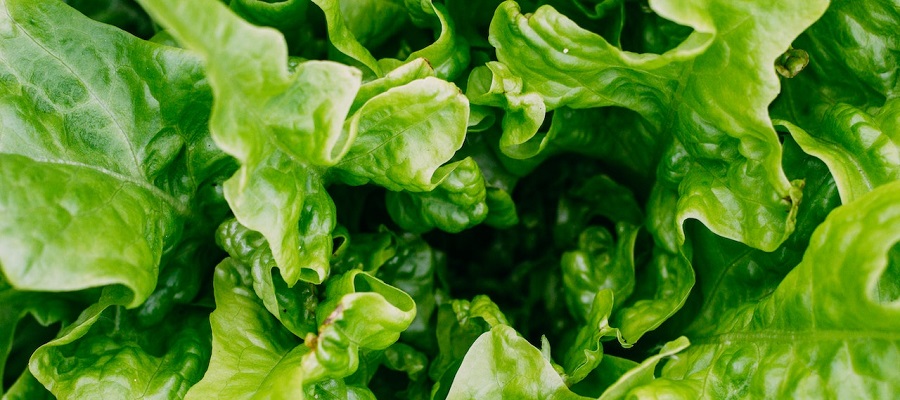Introduction
Low carb diets have become increasingly popular in recent years as a way to lose weight and improve overall health. But what exactly is a low carb diet, and why should you consider it?
What is a Low Carb Diet?
A low carb diet is a way of eating that focuses on reducing the amount of carbohydrates in your diet. This typically means cutting back on foods like bread, pasta, rice, and other grains, as well as sugary foods like candy and soda. Instead, you'll be eating more protein and healthy fats, along with plenty of vegetables and some fruits.
There are many different types of low carb diets, but they all share the same basic principles. By reducing your carb intake, you'll be forcing your body to burn fat for fuel instead of glucose. This can lead to weight loss, improved energy levels, and better overall health.
Why Choose a Low Carb Diet?
There are many reasons why you might choose to follow a low carb diet. Here are just a few:
- Weight loss: Low carb diets have been shown to be effective for weight loss, especially in the short term. By reducing your carb intake, you'll be cutting out a major source of calories and forcing your body to burn fat instead.
- Better blood sugar control: If you have diabetes or are at risk for diabetes, a low carb diet can help you better control your blood sugar levels. By reducing your carb intake, you'll be reducing the amount of glucose in your bloodstream.
- Improved heart health: Low carb diets have been shown to improve several markers of heart health, including blood pressure, cholesterol levels, and triglycerides.
- Reduced inflammation: Many chronic diseases are linked to inflammation in the body. Low carb diets have been shown to reduce inflammation, which may help prevent or manage these diseases.
Of course, there are also some potential downsides to a low carb diet. For example, it can be difficult to stick to in the long term, and it may not be appropriate for everyone. It's always a good idea to talk to your doctor before starting any new diet or exercise program.
Benefits of a Low Carb Diet
A low carb diet is a diet that restricts the intake of carbohydrates, such as those found in sugary foods, pasta, and bread. Instead, it focuses on consuming foods that are high in protein and healthy fats. This type of diet has been shown to have numerous benefits for overall health and well-being.
Weight Loss
One of the most significant benefits of a low carb diet is weight loss. When you reduce your intake of carbohydrates, your body is forced to burn fat for energy instead of glucose. This process is called ketosis, and it can lead to rapid weight loss. Studies have shown that people who follow a low carb diet lose more weight than those who follow a low-fat diet.
Additionally, a low carb diet can help reduce belly fat, which is linked to an increased risk of heart disease and type 2 diabetes. By reducing your overall body fat percentage, you can improve your overall health and reduce your risk of chronic diseases.
Blood Sugar Control
A low carb diet can also help regulate blood sugar levels. When you consume carbohydrates, your body breaks them down into glucose, which is then used for energy. However, if you consume too many carbohydrates, your body may struggle to regulate your blood sugar levels, leading to spikes and crashes in energy levels.
By reducing your intake of carbohydrates, you can help regulate your blood sugar levels and prevent these spikes and crashes. This can be especially beneficial for people with type 2 diabetes, as it can help them manage their condition and reduce their reliance on medication.
Reduced Risk of Chronic Diseases
Finally, a low carb diet has been shown to reduce the risk of chronic diseases such as heart disease, stroke, and certain types of cancer. This is because a low carb diet can help reduce inflammation in the body, which is a major contributor to these diseases.
Additionally, a low carb diet can help improve cholesterol levels, reduce blood pressure, and improve overall cardiovascular health. By reducing your risk of chronic diseases, you can improve your overall quality of life and increase your lifespan.
Types of Low Carb Diets
Low carb diets have become increasingly popular in recent years due to their potential health benefits, including weight loss and improved blood sugar control. There are several types of low carb diets, each with their own unique approach to reducing carbohydrate intake. In this article, we will explore three of the most popular types of low carb diets: the ketogenic diet, the Atkins diet, and the low carb, high fat (LCHF) diet.
Ketogenic Diet
The ketogenic diet, or keto diet for short, is a very low carb, high fat diet that has gained popularity in recent years. The goal of the keto diet is to put your body into a state of ketosis, where it burns fat for fuel instead of carbohydrates. To achieve this, the diet typically limits carbohydrate intake to less than 50 grams per day, and often as low as 20-30 grams per day. This forces the body to rely on fat for energy, which can lead to weight loss and other health benefits.
On the keto diet, the majority of your calories come from fat, with moderate protein intake and very low carbohydrate intake. This means that foods like meat, fish, eggs, nuts, and healthy fats like olive oil and avocado are encouraged, while high carb foods like bread, pasta, and sugar are strictly limited.
Atkins Diet
The Atkins diet is another popular low carb diet that has been around since the 1970s. Like the keto diet, the Atkins diet restricts carbohydrate intake in order to promote weight loss and improve health. However, the Atkins diet is less restrictive than the keto diet, allowing for a gradual increase in carbohydrate intake over time.
The Atkins diet is divided into four phases, with each phase gradually increasing carbohydrate intake while still promoting weight loss. The first phase, known as the induction phase, is the most restrictive, with carbohydrate intake limited to 20 grams per day. As you progress through the phases, you can gradually add more carbohydrates back into your diet, while still maintaining weight loss and other health benefits.
Low Carb, High Fat (LCHF) Diet
The low carb, high fat (LCHF) diet is a less restrictive version of the keto diet that still promotes weight loss and improved health. Like the keto diet, the LCHF diet emphasizes high fat intake and low carbohydrate intake, but typically allows for slightly more carbohydrates than the keto diet.
On the LCHF diet, the goal is to reduce carbohydrate intake to less than 100 grams per day, while still consuming plenty of healthy fats and moderate amounts of protein. This means that foods like meat, fish, eggs, nuts, and healthy fats like olive oil and coconut oil are encouraged, while high carb foods like bread, pasta, and sugar are limited.
Overall, there are several types of low carb diets to choose from, each with their own unique approach to reducing carbohydrate intake and promoting weight loss and improved health. Whether you choose the keto diet, the Atkins diet, or the LCHF diet, it's important to work with a healthcare professional to ensure that you are meeting your nutritional needs and staying healthy while following a low carb diet.
What to Eat on a Low Carb Diet
A low carb diet is a popular way to lose weight and improve overall health. The goal of a low carb diet is to reduce the amount of carbohydrates you consume and replace them with healthy fats and protein. Here are some foods that are great to eat on a low carb diet.
Protein Sources
Protein is an essential nutrient that helps build and repair tissues in the body. Here are some great sources of protein that are low in carbs:
- Meat: Beef, chicken, pork, lamb, and other meats are great sources of protein. Choose lean cuts of meat to keep the fat content low.
- Seafood: Fish and shellfish are also great sources of protein. They are also rich in omega-3 fatty acids, which are important for heart health.
- Eggs: Eggs are a versatile and affordable source of protein. They can be cooked in many different ways and are great for breakfast, lunch, or dinner.
- Dairy: Cheese, yogurt, and milk are all good sources of protein. Choose low-fat or fat-free options to keep the calorie and fat content low.
Vegetables
Vegetables are an important part of any healthy diet. They are low in calories and high in fiber, vitamins, and minerals. Here are some low carb vegetables to include in your diet:
- Leafy greens: Spinach, kale, and other leafy greens are low in carbs and high in nutrients. They are also versatile and can be used in salads, smoothies, and cooked dishes.
- Cruciferous vegetables: Broccoli, cauliflower, and Brussels sprouts are all low in carbs and high in fiber. They are also rich in antioxidants, which can help protect against disease.
- Other vegetables: Peppers, tomatoes, onions, and mushrooms are all low in carbs and can be used in a variety of dishes.
Healthy Fats
Healthy fats are an important part of a low carb diet. They help keep you feeling full and satisfied, and they provide important nutrients for your body. Here are some healthy fats to include in your diet:
- Avocado: Avocado is a great source of healthy fats and fiber. It can be used in salads, smoothies, and as a topping for toast or eggs.
- Nuts and seeds: Almonds, walnuts, chia seeds, and flaxseeds are all great sources of healthy fats. They can be eaten as a snack or added to salads and other dishes.
- Olive oil: Olive oil is a healthy fat that can be used for cooking or as a salad dressing.
- Coconut oil: Coconut oil is a healthy fat that can be used for cooking or baking. It is also a great source of medium-chain triglycerides, which can help boost metabolism.
In conclusion, a low carb diet can be a healthy and effective way to lose weight and improve overall health. By focusing on protein, vegetables, and healthy fats, you can create a balanced and satisfying diet that will help you reach your goals.
What to Avoid on a Low Carb Diet
Low carb diets have become increasingly popular in recent years due to their effectiveness in promoting weight loss and improving overall health. However, in order to reap the benefits of a low carb diet, it is important to know what foods to avoid. Here are three things to steer clear of when following a low carb diet:
Sugar
Sugar is one of the biggest culprits when it comes to weight gain and poor health. It is also one of the first things you should eliminate when starting a low carb diet. This includes not only table sugar, but also any foods that contain added sugars such as candy, soda, and baked goods. Even natural sweeteners like honey and maple syrup should be avoided or used sparingly.
Processed Foods
Processed foods are often high in carbohydrates and low in nutrients. They are also typically loaded with preservatives, artificial flavors, and other chemicals that can be harmful to your health. Examples of processed foods to avoid on a low carb diet include packaged snacks, frozen meals, and fast food.
Grains and Starchy Vegetables
Grains and starchy vegetables like potatoes, corn, and peas are also high in carbohydrates and should be limited on a low carb diet. Instead, focus on non-starchy vegetables like leafy greens, broccoli, and cauliflower, as well as healthy fats and proteins like avocado, nuts, and lean meats.
By avoiding these three things on a low carb diet, you can improve your health, lose weight, and feel better overall.
How to Start a Low Carb Diet
Consult with a Healthcare Professional
Before starting any new diet, it is important to consult with a healthcare professional. This is especially true for low carb diets, as they can have a significant impact on your body and health. A healthcare professional can help you determine if a low carb diet is right for you, and can provide guidance on how to safely and effectively implement the diet.
Plan Your Meals
Planning your meals is an important part of starting a low carb diet. This will help you ensure that you are getting the nutrients you need, while also keeping your carb intake low. When planning your meals, focus on incorporating plenty of protein, healthy fats, and low carb vegetables. Some good options include eggs, chicken, fish, avocado, nuts, and leafy greens.
Track Your Progress
Tracking your progress is an important part of any diet, and a low carb diet is no exception. This will help you see how your body is responding to the diet, and can help you make adjustments as needed. Some things to track include your weight, body measurements, and how you feel overall. You may also want to track your carb intake to ensure that you are staying within your target range.Starting a low carb diet can be a great way to improve your health and achieve your weight loss goals. By consulting with a healthcare professional, planning your meals, and tracking your progress, you can set yourself up for success on this diet.
Possible Side Effects of a Low Carb Diet
Low carb diets have become increasingly popular in recent years due to their effectiveness in weight loss and management of certain health conditions such as diabetes. However, like any other diet, low carb diets come with their own set of side effects. In this article, we will discuss some of the possible side effects of a low carb diet.
Keto Flu
Keto flu is a common side effect of a low carb diet, especially during the initial stages of the diet. It is characterized by symptoms such as headaches, fatigue, nausea, dizziness, and irritability. These symptoms are caused by the body's transition from using glucose as its primary source of energy to using ketones. The symptoms usually subside after a few days or weeks as the body adapts to the new diet.
Constipation
Another possible side effect of a low carb diet is constipation. This is because low carb diets are usually low in fiber, which is essential for maintaining regular bowel movements. To prevent constipation, it is important to include high-fiber foods such as vegetables, fruits, and whole grains in your diet. You can also take fiber supplements to increase your fiber intake.
Bad Breath
Bad breath, also known as halitosis, is another possible side effect of a low carb diet. This is because when the body is in a state of ketosis, it produces ketones, which can cause a fruity or acetone-like odor in the breath. To prevent bad breath, it is important to maintain good oral hygiene by brushing and flossing regularly and drinking plenty of water to keep the mouth hydrated.


